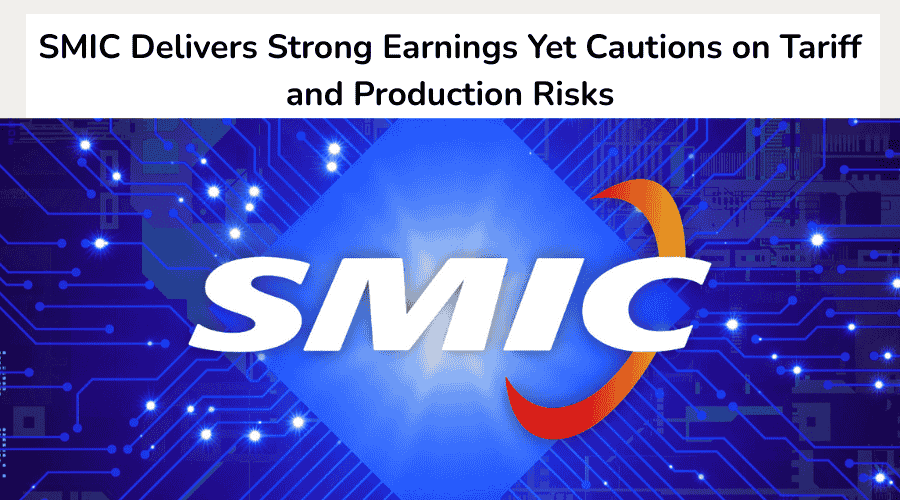SMIC Delivers Strong Earnings Yet Cautions on Tariff and Production Risks
Semiconductor Manufacturing International Corp (SMIC), China’s leading semiconductor producer, posted significant gains in revenue and profit during the first quarter of the year, partly fueled by accelerated orders from U.S. buyers seeking to avoid steeper tariffs.
However, the company’s earnings still missed analyst projections, and SMIC warned that upcoming quarters could be more challenging.
SMIC announced a 162% rise in profit, reaching $188 million for the January to March period compared to the previous year. Revenue also increased by 28%.
Despite this growth, the company failed to meet the $222.4 million profit target projected by LSEG analysts. Following the announcement, SMIC’s shares on the Hong Kong Stock Exchange fell by 6.8%.
Orders from U.S. customers played a notable role, contributing 12.6% of total revenue in the first quarter, up from 8.9% in the previous quarter.
This figure, however, remained below the 14.9% recorded a year earlier. Looking ahead, SMIC projected a potential 6% revenue drop in the second quarter due to lower production yields linked to the rollout of new manufacturing equipment.
Related story: Nvidia Adjusts H20 Chip for China to Comply With U.S. Export Rules
Chinese Authorities Step In to Ease Industry Pressures
Speaking during the earnings call, SMIC co-CEO Zhao Haijun noted that government efforts are underway to shield the chip sector from the impact of U.S.-China trade tensions.
“The direct impact on China’s foundry sector at the moment is minor due to tariff exemptions and a diversified supply chain,” Zhao stated.
However, he cautioned that the situation remains uncertain and warned that reduced customer orders resulting from price hikes could trigger a “hard landing” for the semiconductor market.
SMIC’s core business revolves around producing chips for consumer electronics and household appliances. Advanced chips, such as those found in Huawei smartphones, make up only a small share of its output, and the company has never confirmed supplying Huawei.
In a move to ease trade tensions, the administration of U.S. President Donald Trump granted tariff exemptions on specific Chinese products, including smartphones, computers, and memory chips.
Nevertheless, other tariffs remain in effect. Chinese regulators have also provided tariff relief for certain goods, including semiconductors, to support the country’s technology industry.
Read next: Microsoft Stock Soars as Azure and AI Drive Strong Quarterly Results

